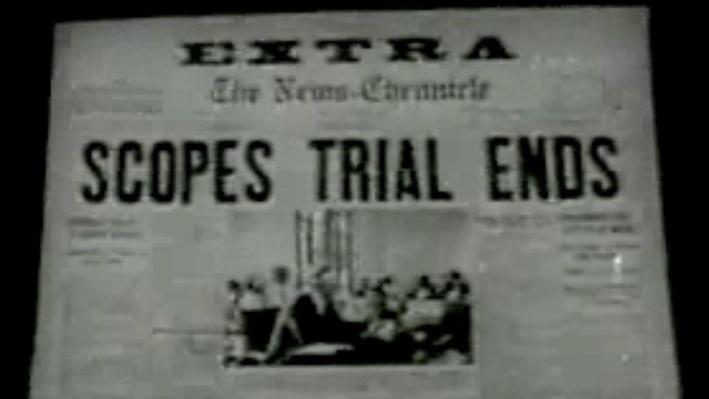
The Scopes Trial, officially known as The State of Tennessee v. John Thomas Scopes, is often regarded as one of the most pivotal legal battles concerning the intersection of science, religion, and education in the early 20th century. Its conclusion not only impacted the participants but also set a precedent with ramifications that echoed through subsequent generations. But how did this landmark case culminate, and what implications did its ending harbor for American society? Let us delve into the intricacies of this trial, uncovering how it concluded and the broader significance it carried.
The trial was ignited by the Butler Act, a Tennessee law enacted in 1925, which prohibited public schools from teaching any theory that denied the biblical account of human creation. John Scopes, a substitute teacher, willingly accepted an assignment to teach evolution, thus challenging this law. The stage was set for a courtroom drama that would foreshadow colossal philosophical debates.
As the trial progressed, it was marked by an intense courtroom atmosphere characterized by fervent public interest and media frenzy. It featured prominent figures, including William Jennings Bryan representing the prosecution, a three-time presidential candidate, and the agnostic scholar Clarence Darrow as defense counsel. The clash of these titan intellects posed a compelling question: Can faith and science coexist in the educational curriculum? The courtroom became the battleground for progressivism versus traditionalism, and the nation’s attention was captivated.
The trial itself lasted only eight days, yet it showcased extraordinary rhetorical flourishes and legal maneuverings. Witnesses were called, including scientists and theologians, illustrating the depth of the ideological divide. Scopes did not deny his actions but directed attention to the larger issue at hand: the right to academic freedom and the conflict inherent in dogmatic educational policies.
However, the conclusion of the trial was not without its ironies. On July 21, 1925, the jury found Scopes guilty, leading to a fine of $100. This outcome reinforced the legality of the Butler Act, yet it paradoxically galvanized the proponents of evolutionary biology and academic freedom. The conviction, though modest in financial terms, symbolized a broader triumph for fundamentalist ideology. However, the appeal and the subsequent legal wrangling that ensued turned the tide toward a more profound cultural revolution.
The appellate court later modified Scopes’ conviction, ultimately overturning the fine on a technicality, resulting in a legal win for the defense. While this may have seemed a loss for Scopes at first glance, it highlighted the growing tensions within American society regarding education and religious orthodoxy.
This landmark case did not merely end with Scopes’ conviction; it initiated a paradigm shift. Its resolution ignited a pivotal moment for the American Civil Liberties Union, which began to take a more pronounced stand on issues of educational freedom. It questioned how democratic societies should reconcile diverse viewpoints, transforming the trial into an enduring symbol of the struggle for intellectual integrity against institutionalized beliefs.
In the years that followed, despite the trial’s denouement, the fight over the teaching of evolution versus creationism not only persisted but escalated. Creationist movements emerged, culminating in the reintroduction of similar legislation in various states, perpetuating the discourse initiated during the Scopes Trial. This ongoing saga asks a provocative question: Can a society rooted in empirical knowledge wholly discount spiritual belief? It dares to challenge the efficacy of faith in a modern educational context.
Moreover, the trial’s legacy continued to influence legislative frameworks across America, prompting debates that resonate in contemporary discussions around education. In subsequent decades, pivotal cases such as Epperson v. Arkansas (1968) and Edwards v. Aguillard (1987) would further interrogate the intersections of educational policy and religious doctrine, echoing the complexities of the original Scopes Trial.
Today, the enduring discourse surrounding the Scopes Trial invites us to ponder deeply: How should educational systems navigate the often turbulent waters between scientific inquiry and religious belief? The trial remains a cautionary tale and a beacon of advocacy for civil liberties and academic freedom.
In conclusion, the Scopes Trial ended in a verdict that seemed to reinforce traditional values yet simultaneously catalyzed an ongoing dialogue about education and morality. Its repercussions underline the enduring tensions within American society and pose a challenge to future generations. The trial’s resolution not only marked a moment in legal history but also established a framework for continued discourse—a legacy that remains vibrantly alive as society grapples with the complexities of knowledge, belief, and the role of education. This trial continues to serve as a pivotal reference point in the ongoing conversation about the nature of truth and the limits of societal understanding.
